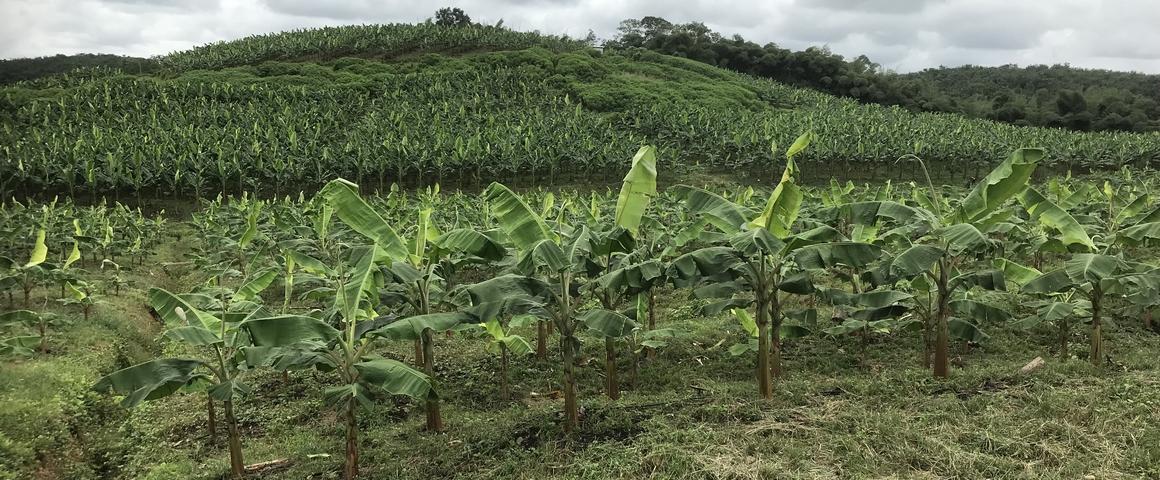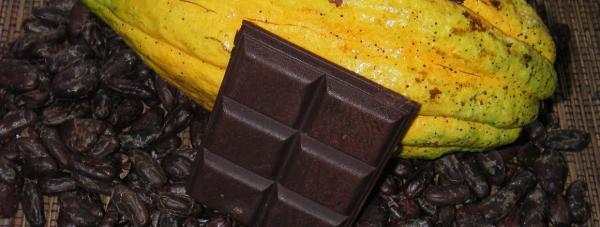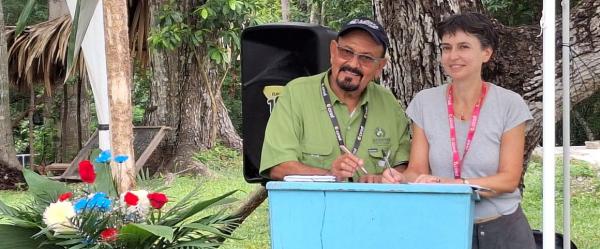Science at work 16 December 2025
- Home
- Press area
- Press releases
- Pesticide-free ecological intensification of plantains
IPA, an initiative for the large-scale production of pesticide-free plantains

A field of pesticide-free plantain trees in Côte d’Ivoire , 2021© S. Dépigny, CIRAD
As a key ingredient in many everyday recipes, plantains are crucial to food security and food sovereignty in numerous Central and West African countries. In order to meet growing demand from more than 500 million consumers, yields need to increase steadily. While some producers are looking to conventional intensification, which is input-intensive (fertilisers and pesticides), CIRAD and its partners propose pesticide-free ecological intensification, which is both efficient and preserves human and soil health.
IPA, an initiative bringing together African plantain sector stakeholders
The goal of the Initiative for the ecological intensification of plantains in Africa (IPA), launched on Tuesday 1 March at the Paris International Agricultural Show, is to support the development of the plantain sector, according to principles of sustainability and social justice. All stakeholders in the sector, from production to sales, via processing and distribution, are invited to take part in the exchanges and to co-develop cropping systems that build on the knowledge of almost 2 million producers, as well as on the very wide range of crops varieties (more than 100).
In addition to production itself, the members of the IPA initiative highlight the potential of developing an agri-food industry around plantains. The sector is a real economic opportunity, promising value and job creation, while reducing post-harvest losses.
The first phases of the IPA initiative
In addition to a forum for exchange and sharing of experience, knowledge and resources, the members of the IPA initiative plan to build joint advocacy capacities for the production of pesticide-free plantains. Institutions, professional organisations, agricultural training and research centres, public and private donors and private stakeholders (processors, distributors, etc.) are all invited to join the initiative.
The IPA initiative aims to extend to all producer countries in Central and West Africa the exchanges between plantain sector stakeholders in Cameroon and Côte d’Ivoire, launched in the context of the FABA project, Agricultural training for plantain growers in Africa, financed by the solidarity fund for innovative projects of the French Ministry for Europe and Foreign Affairs.
IPA partners include:
Côte d'Ivoire
- ANADER (Agence nationale d'appui au développement)
- CNRA (Centre national de recherche agronomique)
- CSRS (Centre Suisse de Recherches)
- FIRCA (Fonds Interprofessionnel pour la Recherche et le Conseil Agricoles)
Cameroon
- MINADER (Ministère de l'Agriculture et du Développement Rural)
- ACEFA (Le programme d’Amélioration de la compétitivité des exploitations familiales agropastorales)
- AFOP (Le programme d'appui à la rénovation et au développement de la formation professionnelle dans les secteurs de l'agriculture, de l'élevage et de la pêche)
- CARBAP (Centre africain de recherches sur bananiers et plantains)
- IRAD (Institut de Recherche Agricole pour le Développement)
Benin
- Unstim (Université nationale des sciences, technologies, ingénierie et mathématiques)
Ghana
- CRI (Crops Research Institute)



























